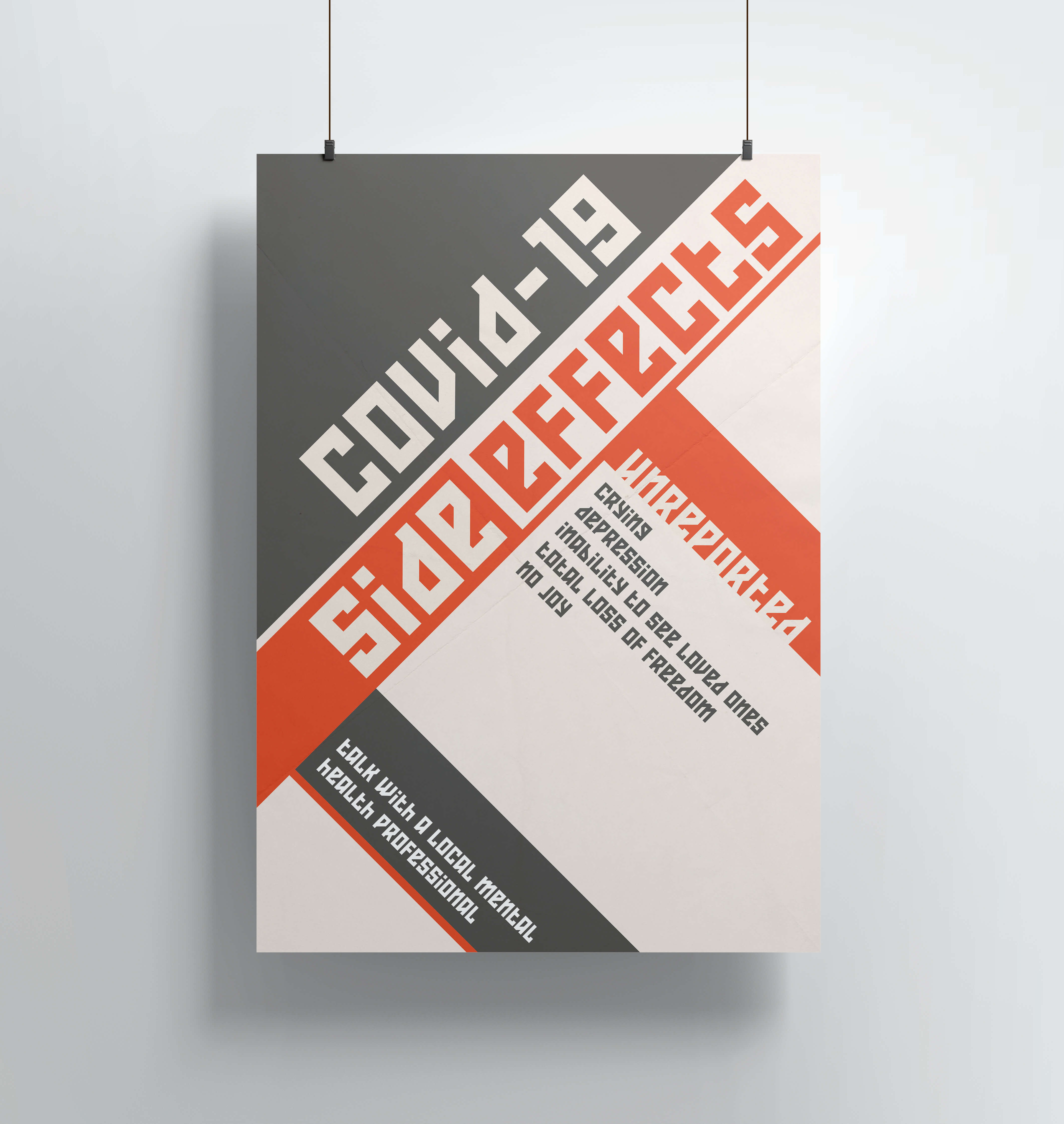Chronicles / COVID-19 Vaccination Survey
Motivation
Early 2021 when Malaysia and Singapore started rolling out vaccinations there are some who expressed a hesitancy to receive the COVID-19 vaccine. We wanted to find out why seemingly rational people were resistant to an obvious solution to a global problem.
In the past, vaccination acceptance has relied on the trust that people have in physicians, nurses, and pharmacists. But recently that re-assuring face-to-face contact between health care providers and the public has been attenuated, partly because so much medicine is practiced virtually, as a safeguard against exposure to the virus. That places more responsibility on everyone else. We can counter misinformation not only by electing political representatives who favor pro-vaccination health policies but also by communicating with people in our local communities, where much of the discussion about health matters takes place.
As part of our efforts to reach out to the community, we created an informal online survey on our website to try to uncover possible reasons people in our community are hesitant towards getting the COVID-19 Vaccine.
This survey is part of our research to uncover possible reasons people in our community are hesitant towards getting the COVID-19 Vaccine. We were curious why the registration rates for the vaccination were relatively low in Malaysia. We hope that our findings can provide insight to individuals and caregivers to better communicate the importance of vaccination.
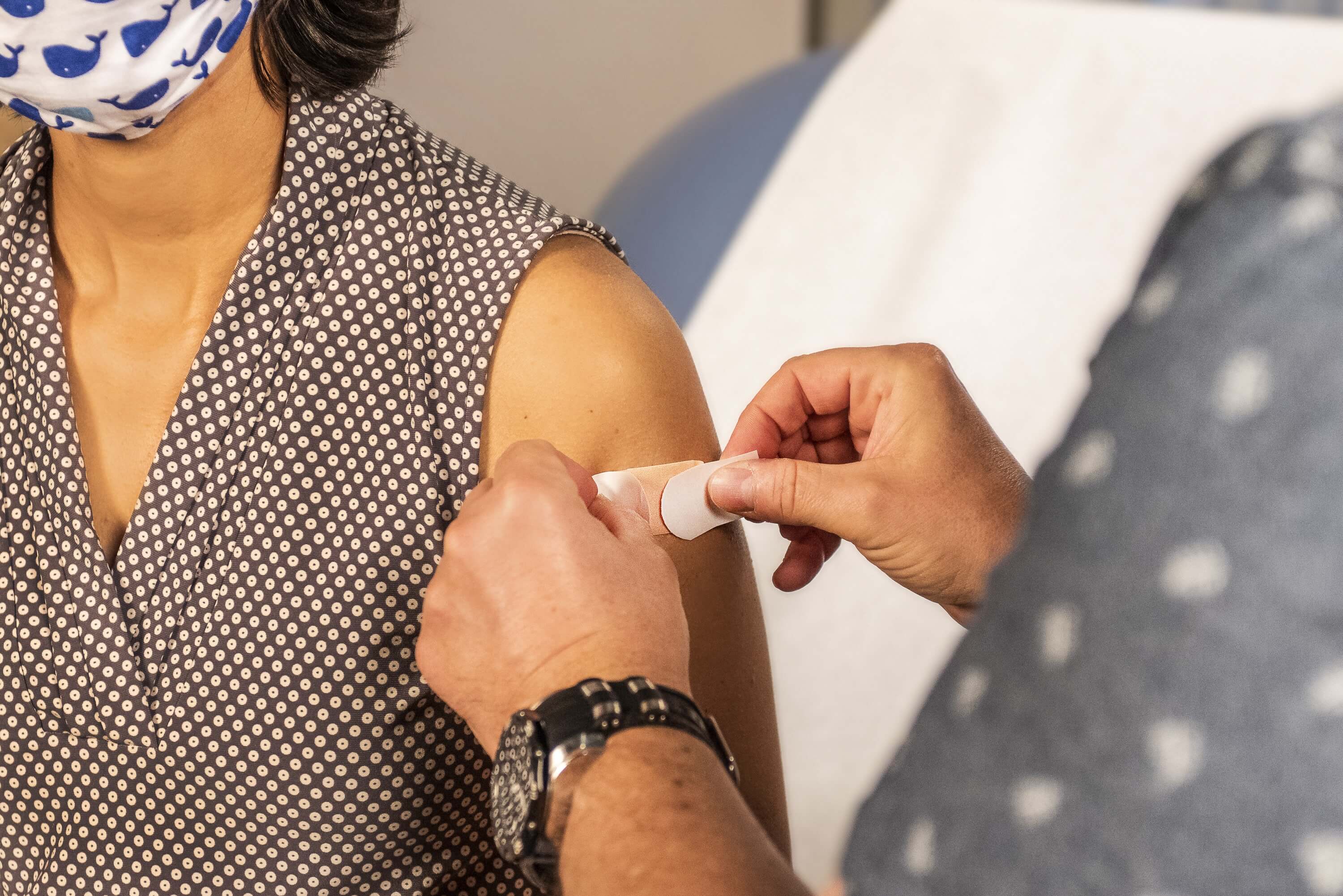
The initial question of the survey serves as a screening mechanism to categorize the participants into 4 different groups:
- I will get vaccinated when it is offered to me. (Pro-vaccination)
- I do not intend to get vaccinated. (Anti-Vaccination)
- I am hesitant to get myself vaccinated. (Hesitant)
- I don’t really care about the vaccination. (Apathy)
As the primary objective of the survey was to discover the possible reasons people are hesitant to receive the vaccine, we were most interested in the data collected from participants in Groups 2 and 3.
Participants from Group 1 (Pro-vaccination) were also asked to predict the reasons others might be hesitant to take the vaccine.
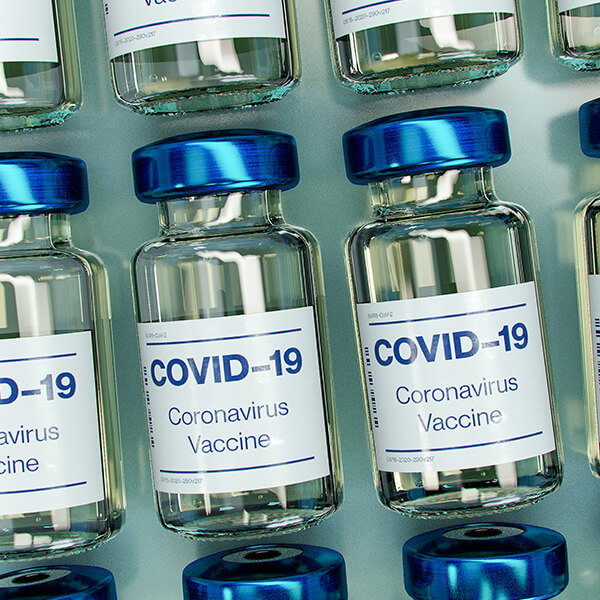
Results
This survey was conducted to uncover possible reasons people in our community are hesitant towards getting the COVID-19 Vaccine. The data that we collected indicated overwhelming positive reception towards receiving the vaccine both in Malaysia and in Singapore. For the Malaysian survey 88.9% replied that they will get vaccinated when offered to them when responding to the survey English and Malay. For the Singaporean survey 83.3% replied that they will get vaccinated when offered to them.
In Malaysia, even though this positive result was not consistent with the registration rates published by the Jabatan Khas Jaminan Akses Bekalan COVID-19 (JKJAV) as of April 2020, it did not affect the data collected about the reasons for those who are hesitant to take the vaccine.
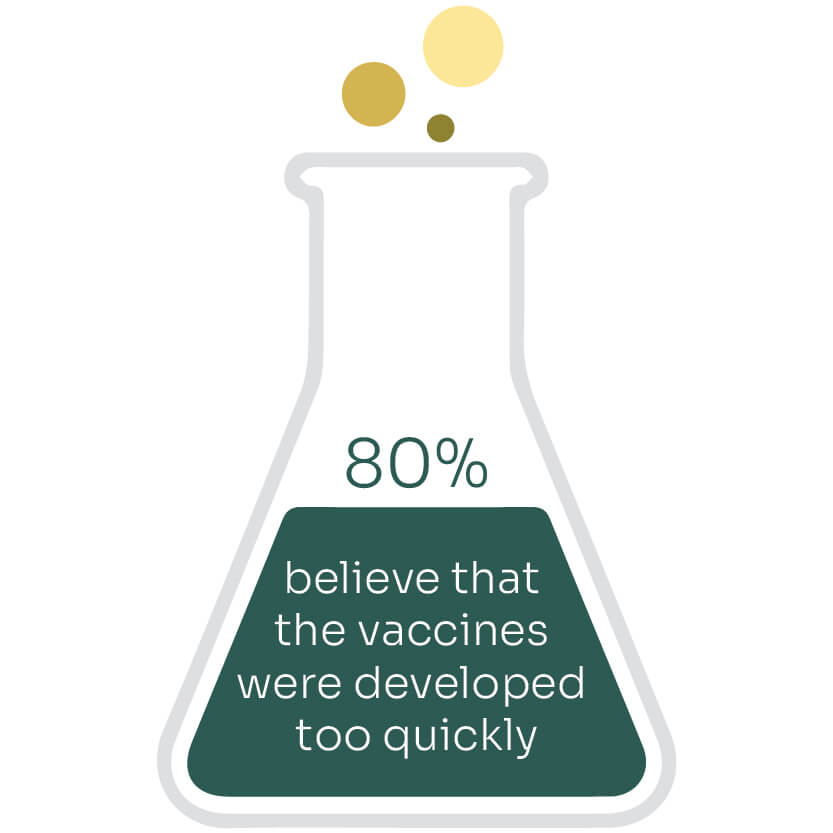
Institutional mistrust
In Malaysia we observed that there was a mild correlation between trust in information provided by the government and the receptivity of the vaccine. This mistrust could come from a combination of psychological reactance towards the government’s efforts coupled with a perception of local political instability. While in Singapore the responses for trust in information provided by the government were relatively high.
80% believe that the vaccines were developed too quickly. Even though the timeline for the vaccine creation was shortened, the vaccines still went through multiple phases of testing for safety and efficacy. This suggests mistrust and lack of understanding of the vaccine creation process as well as a mistrust in the phacumential companies that create the vaccine.
Misinformation
Many who were hesitant and did not intend to get vaccinated believe that the negative side effects were long term. This could be attributed to misinformation that stuck in their minds despite overwhelming facts that vaccines are safe and effective.
No participants from the hesitant and anti-vaccine group cited blood clots as a side effect that could be a cause of concern. This is despite the fact that blood clots are a significant but rare side effect. This omission could indicate a bias that allowed them to ignore new information even though it supports their initial position.
Virtue signalling
Since we had richer data on participants willing to receive the vaccine, we felt that it was also necessary to observe the trends that these individuals had. Despite knowing the risk of side effects 35.9% indicated that they would like to protect themselves and others from the virus. 20.7% cited that taking the vaccine is a vital step to stop the pandemic and build herd immunity in the community. This indicated virtue signalling where ensuring a healthier community was seen as a positive and desirable virtue.
Launching a campaign that mimicked virtue signaling from those who intend to be vaccinated might entice those who are hesitant to vaccinate to change their minds at a later date.
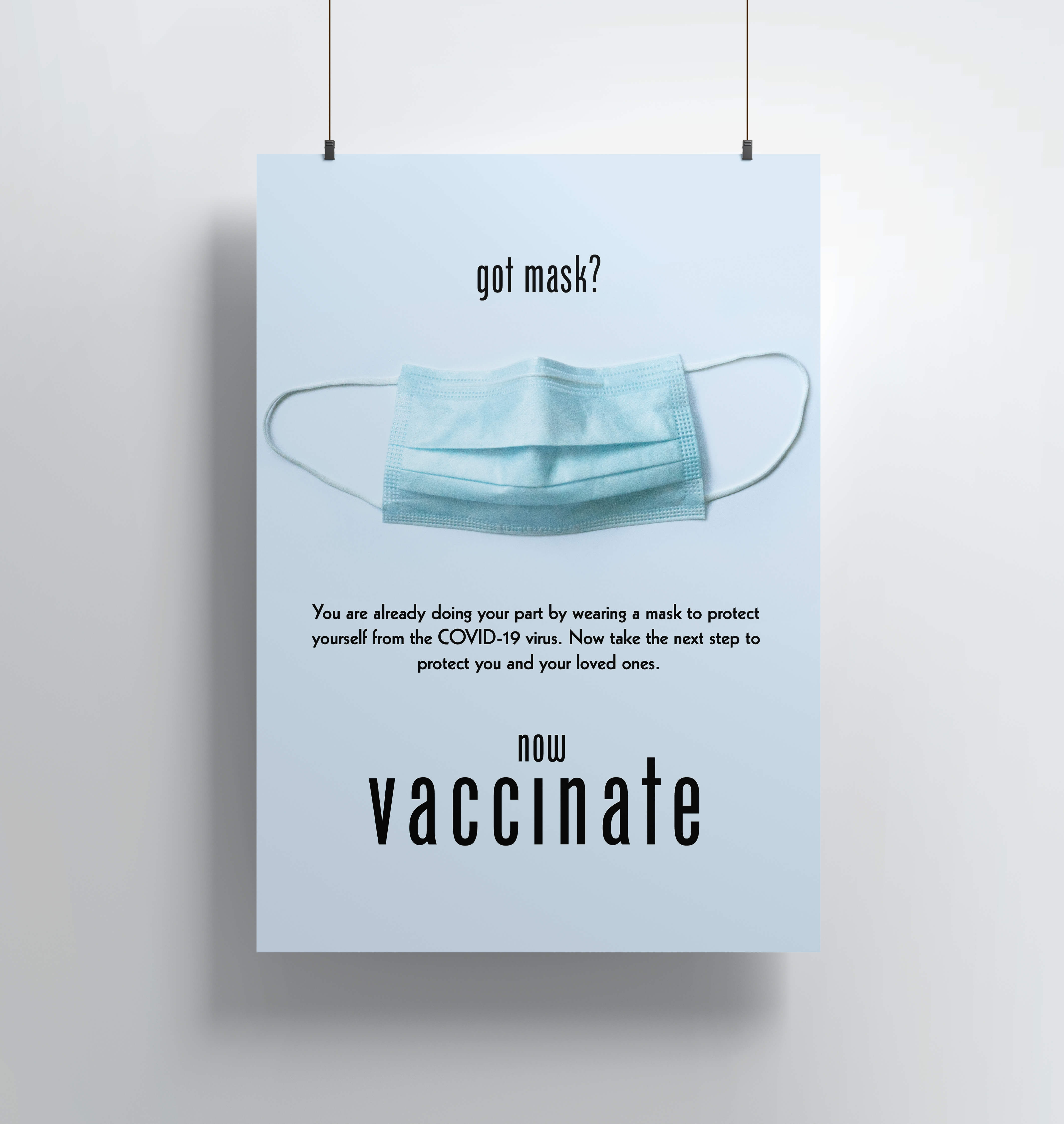
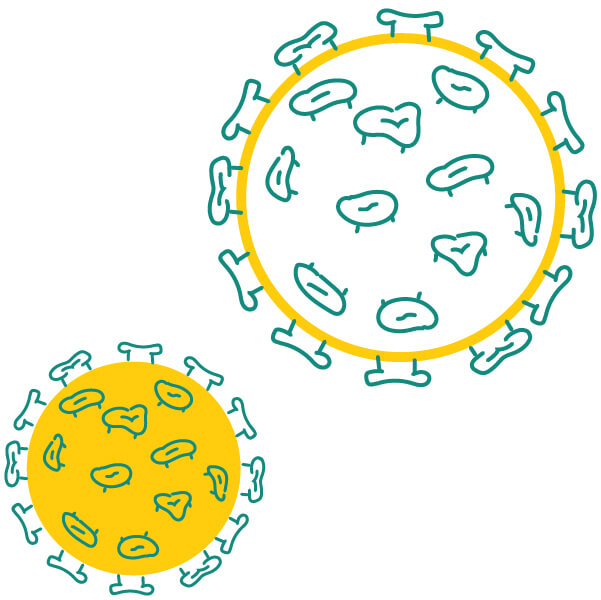
We hoped to understand the different positions people held on the COVID-19 vaccination.
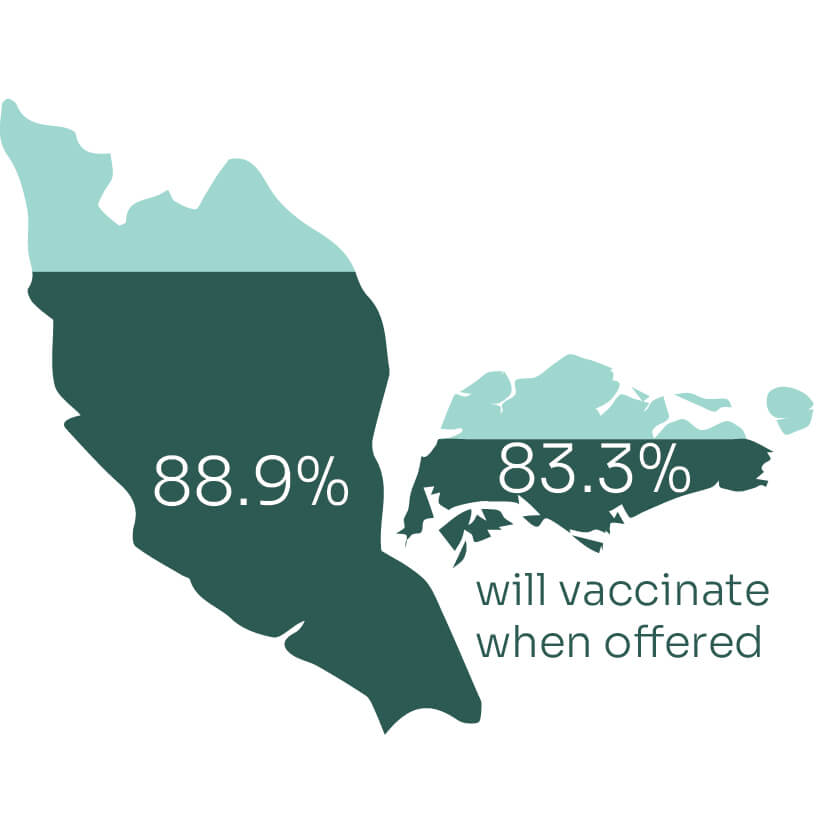

Distribution
Location
In Malaysia geolocation was not explicitly collected but some data is known to come from the states of Johor, Penang, Kuala Lumpur and Selangor.
Language
The survey was conducted in both English and in Bahasa Malaysia. The English version of the survey started collecting data from 11 March and the Malay version started collecting data from 7 April 2021.
Initial results from the English version of the survey contradicted the national statistics of those registered for the vaccination. We then initiated a Malay version of the survey to capture a wider audience.
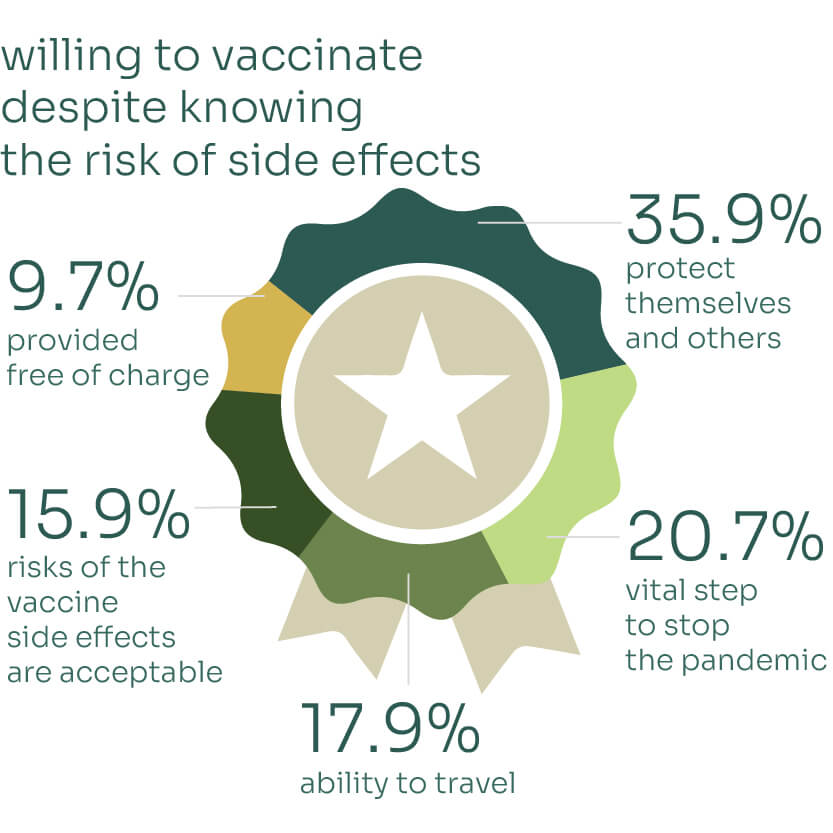
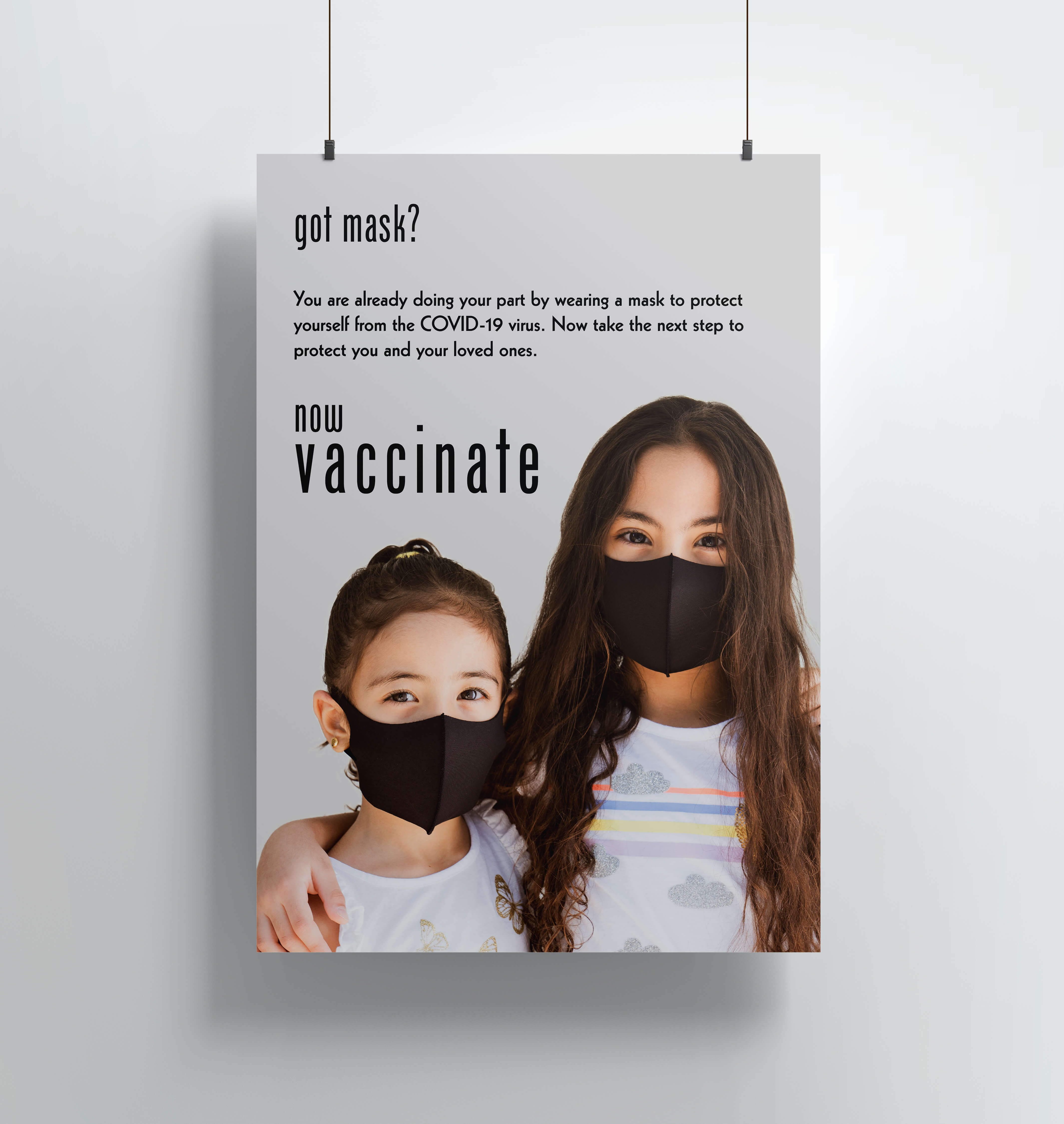
For a full report contact us.
